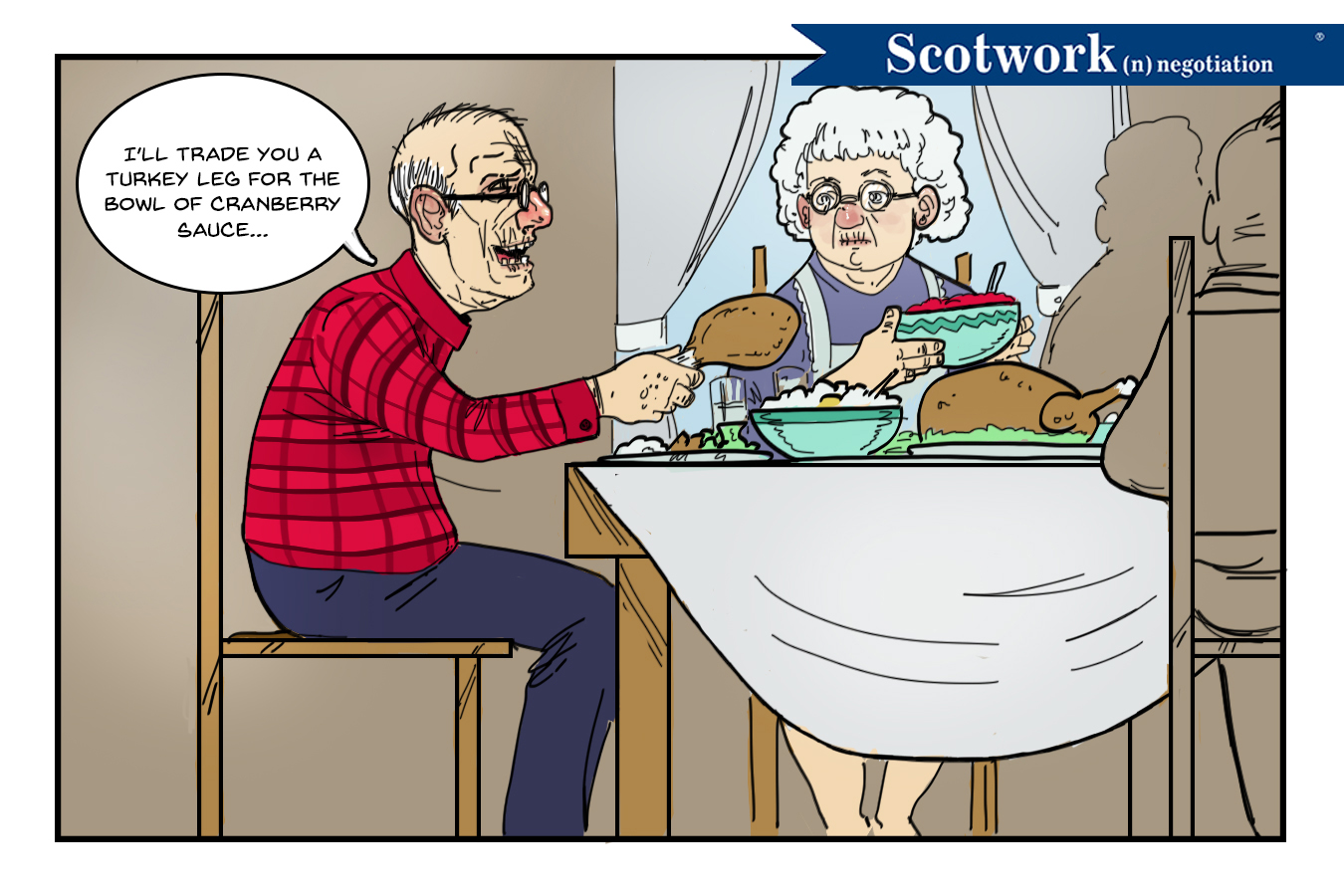I have 24 people coming to my house for Thanksgiving. My family, in-laws, friends, and friends of friends. Everyone is bringing something to contribute to dinner. There is one dish they will all have in common and that’s opinion. Some will have one about the food, others about politics, some about each other, but they will all bring their opinions. I won’t agree with them all but I’ll probably hear them all! Here’s how I’m planning to negotiate Thanksgiving and all those opinions.
First things first - what is an opinion? According to the Oxford Dictionary, opinion is defined as, “A view or judgment formed about something, not necessarily based on fact or knowledge.”
I know it sounds silly, but it’s a good reminder that an opinion is not fact based! It’s a point of view. Good news! This means you don’t have to believe it, buy into it, or have to defend against it. It’s just an opinion. The bad news is - everyone has one and they are sometimes hard to decipher from fact, particularly when they are said with confidence. So if you are not careful, you can find yourself accepting someone else’s unfounded opinion or arguing about something not based in any truth.
So here are some tips on how negotiators deal with opinions:
Ask questions. The first thing to do when that opinion is thrown out there is to get curious and try to understand the foundation of the opinion. It’s helpful to know how and why the opinion was formed. It will give you useful information on how to deal with that opinion.
So when your sister starts to give you that unwanted parenting advice, instead of telling her to “stuff it!” ask how she came up with that advice. Or ask her to provide the data to support her opinion. There’s no need to argue with her, just seek to understand.
Test the boundaries. When seeking to understand, test the boundaries of an opinion. Sometimes the stated opinions don’t apply to every situation. Try to find out the different circumstances where the other party would change their opinion.
So when your brother starts to give you his opinion about your investments, instead of arguing with him about his silly “get-rich-quick” scheme, ask him what happens with varying amounts of money or if macro economic conditions change and see if his opinion changes. It’s good to know the conditions at which the opinion is no longer valid.
No need to argue. It’s ok to disagree with someone else’s opinion. When it’s clear neither side will see the other’s point of view, agree to disagree. There’s no need to keep arguing. It wastes time and is unproductive.
When your cousin starts in about how much better his cranberry sauce is than yours, instead of arguing with him, just agree to disagree. If that’s not good enough, then put it to the test. Have him make his and you make yours and let everyone at the dinner taste for themselves. No need to argue, just have them put their money where their mouth is.
Negotiations and the holidays can be stressful. Arguing with people about their opinions doesn’t have to be stressful. Try the above and see what happens. I hope it lessens the stress of your Thanksgiving and keeps you out of needless arguments. Above all, remember to be thankful and enjoy your Thanksgiving.

